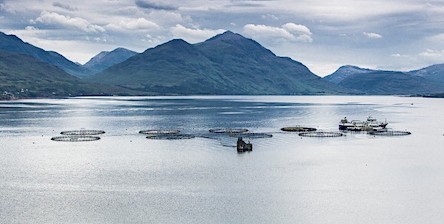New figures published by Scottish Government on Monday showed record-breaking production of Scottish salmon in 2019.
The Scottish Fish Farm Production Survey for 2019 showed the sector farmed 203,881 tonnes of salmon last year, an increase of 30.7% on 2018.
Statistics from HMRC earlier this year also showed that 2019 exports of fresh Scottish salmon also achieved a record high with an increase of 26% to 94,000 tonnes.
Salmon is Scotland’s biggest food export.
Employment on salmon farms increased last year by 185 to 1,651.
“While 2020 has been an exceptionally challenging year due to coronavirus, the sector has ensured that all staff have been protected with a variety of safety measures and farming has continued,” said the Scottish Salmon Producers Organisation (SSPO).
“As a result of all these efforts production is estimated to grow again this year, to around 207,000 tonnes, according to the Scottish Government statistics.
“While exports have been severely hampered by the impact of coronavirus, sales within the UK market have grown this year.”
Hamish Macdonell, Director of Strategic Engagement at the SSPO, said: “Our farmers achieved record production levels in 2019, employed more people and exported more around the world.
“In doing so, they injected significant sums into many of Scotland’s most sparsely populated rural areas and boosted the economy as a whole.”
Rural Economy Secretary Fergus Ewing said: “The latest figures show record levels of salmon being produced by fish farms with the finfish sector on track to achieve its sustainable growth target of 210,000 tonnes by 2020.
“With increased jobs and stock across all farmed fish I congratulate the sector for its efforts, delivering unprecedented production of this nutritious, quality seafood and creating more highly paid, highly skilled jobs in many of our most remote and fragile communities.
“I look forward to salmon maintaining its place as Scotland’s biggest food export, as a key contributor to our food and drink success story which in turn is supporting the wider supply chain.
“With the impact of coronavirus (COVID-19) and threats from Brexit, we will do all we can to support the sector and the benefits it brings, working to drive improvements in research, innovation and regulation to deliver further sustainable growth.”
